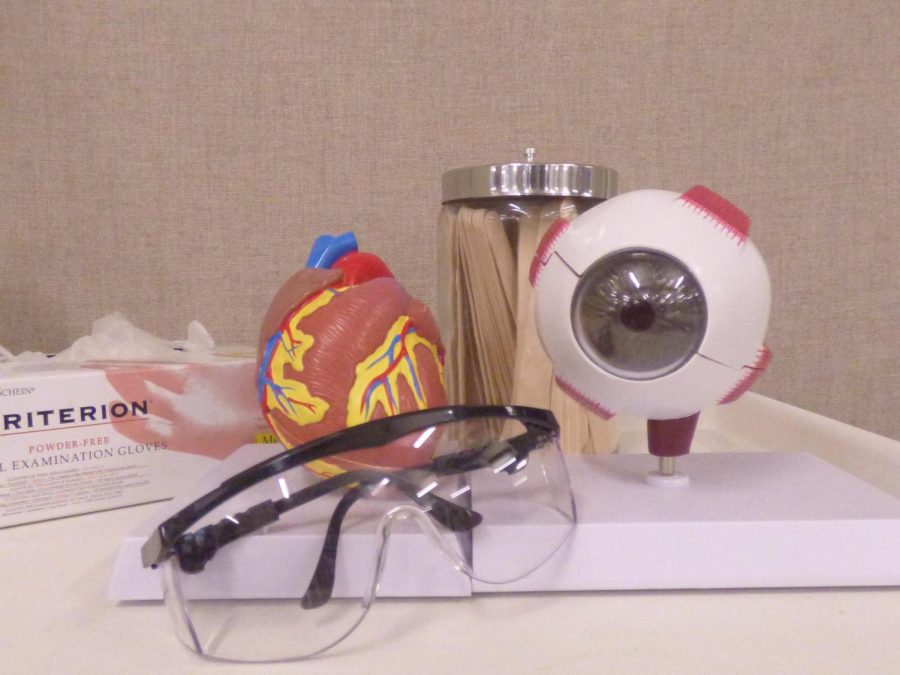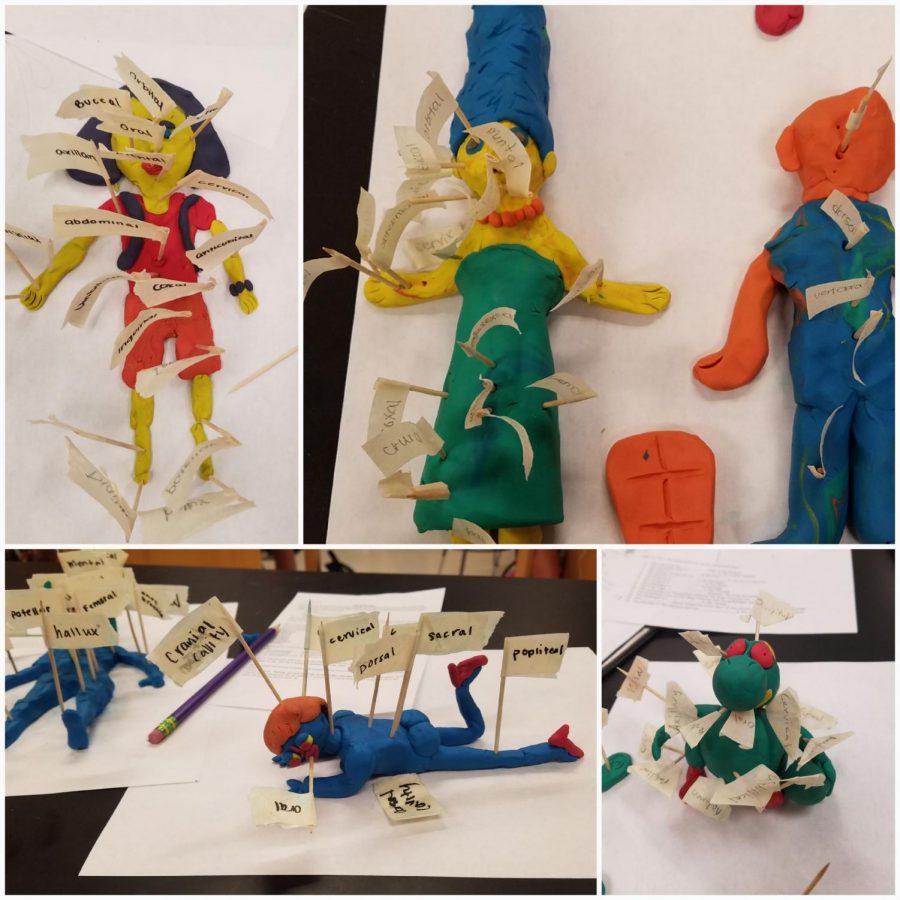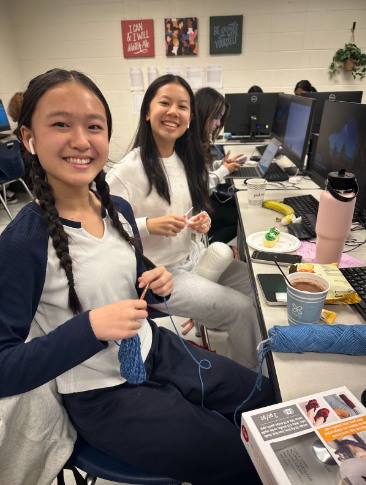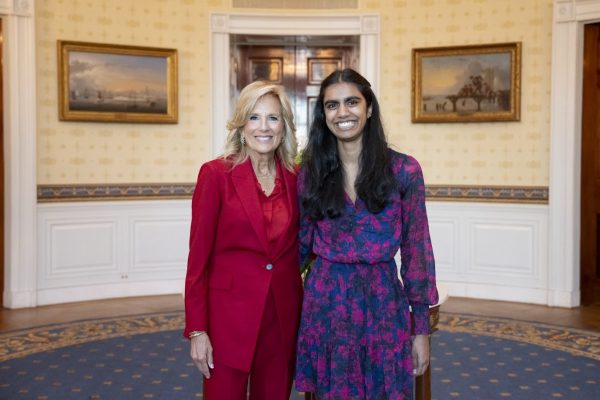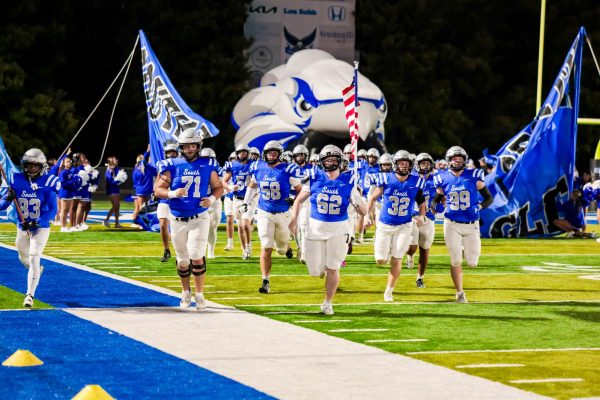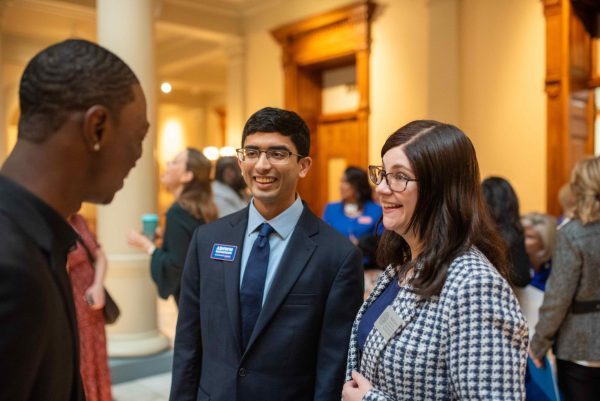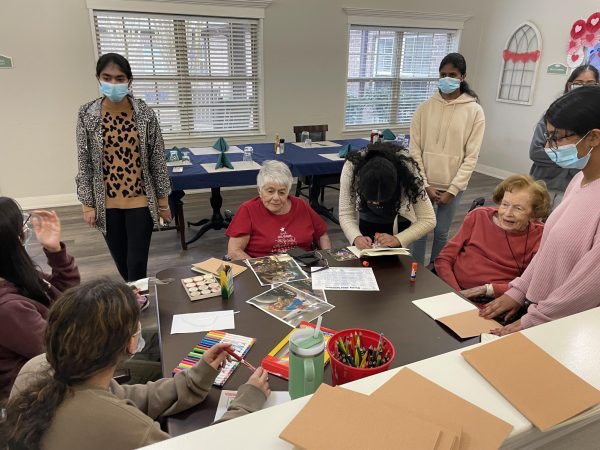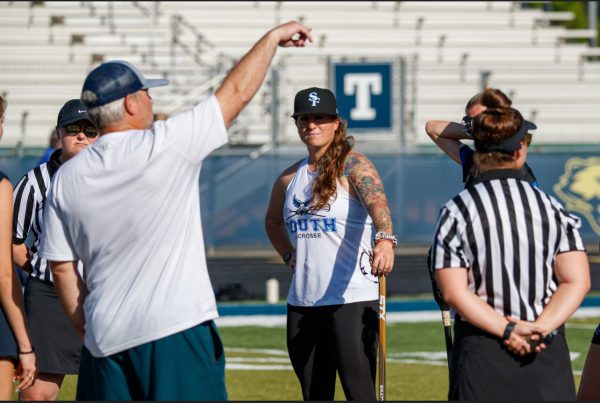South’s healthcare options: Human Anatomy and Physiology
Used with permission from Dhrithi Tummula
The world of anatomy. From body system to hands-on dissections, anatomy has many different subjects and topics to teach to students. Many students who have taken this class are thankful for the rigorous composition because it helps in college.
At the white coat ceremony, any medical student is beyond thrilled to now become a doctor. For those who do not know, a white coat ceremony signifies the beginning of medical students’ journey to achieve the long white coat, when they are physicians. But we mustn’t forget the journey taken to reach the final destination. Going into any healthcare field or career requires extensive training, studying, and commitment. A student can begin his or her commitment and training from the very first day they enter high school. Despite the fact that South Forsyth High School doesn’t offer a “healthcare pathway”, the school has designed its own route for students venturing into the field of medicine. To begin with, students should look at the beginning stages of college. Due to the fact that there is no true “pre-med” major, most students interested in going into healthcare major in a subject close to science based on his or own interests. Some of these science classes in college help students be part of the pre-med track that leads future healthcare students in the right direction. However, any academic path can lead students into the field of medicine as long as he or she has the determination to achieve his or her goal. To begin preparing for college, students can begin to take classes related to the healthcare field in order to get the most experience available to them. Human Anatomy and Physiology is a big part of a future healthcare student’s education because it consists of the basics on the human body and the systems within it.
Ms. Kelsey Parent, a Human Anatomy and Physiology teacher at South Forsyth High School, has answered some questions about the class and how the class can benefit students wanting to be part of the medical field.
Q: What do students do in Human Anatomy and Physiology?
A: We learn about the structures of the body and how those structures work. Generally, we go through each body system, so we start the beginning of the year learning about the basics about the body and some of the scientific terms that students need to know. Then, we dive into each system as a chapter.
Q: How would you define human anatomy?
A: Human Anatomy is basically just knowing all about the body, knowing how the body and each system work, and the amazing way how the different systems work together because not only do we learn about each system individually, but we also learn how they interlink and how everything has to work together in a very precise way for the body to work.
Q: What opportunities does this class provide that could be useful to future healthcare students?
A: The class provides a ton of opportunities. For example, we get to do microscope work during histology when we look at tissues. This is a great class for future healthcare students to take because we cover a good bit of what they would see in anatomy and physiology when in college. I have had several students who are at the University of Georgia in the pre-med track, nursing students, and Physician Assistants (PA) students that have all emailed me and thanked me for the information we covered because it prepared them for the classes at college level. This class helps people be an advocate for themselves because sometimes we go to the doctor, and the doctor mentions terms that we have no idea what they mean, and we do not get the best healthcare we can. By taking this class we can get a basic knowledge of the human body and advocate for ourselves.
Q: For a student wanting to go into medicine, do you think that this class is important to take in high school?
A: Absolutely. This class and AP Biology are some of the best classes that prepare you for a track in pre-med, nursing, etc. However, this class is definitely important because it definitely gives you preparation in terms of dissections and other hands-on healthcare projects. A lot of the pictures I show are detailed and if you have never experienced or seen real-life pictures of different body organs before and you end up going to college and the first time you see blood, you might be grossed out. This class gets you through the squeamish stuff since we do projects like brain and heart dissections, so students can also get the hands-on experience before college.
Q: What are some of the experiments or dissections students have done in this class?
A: We do several labs and plenty of hands-on activities. Recently, during histology, we did a “who has cancer” lab where students had to act as pathologists and look at tissue slides and determine whether or not the tissue sample had cancer characteristics or not. We also did a diabetes lab, an endocrine disorder lab, a muscle fatigue labs, heart rate lab, and even lung capacity labs. Additionally, we do a full cat dissection that lasts for about three weeks where we go in-depth into each system of the cat.
Q: Do you think that this class is a challenging class and pushes students to do their best?
A: Absolutely. The class is challenging in terms of the amount of content we cover. Specifically, most classes maybe do about 9 or 10 units over the year, whereas, we do almost 13 or 14 because of the number of body systems and we do move fairly quickly. There are a couple of units that are a lot harder than others like the nervous system. It’s a challenging course but that’s why it’s so important that you take it if you want to go into healthcare because it is kind of like dipping your toes. For instance, if you can’t handle my class it might not be a good choice to try and waste some money in college for healthcare.
Q: How is this class beneficial to future healthcare students?
A: It really prepares them for the rigor of going into the healthcare field. The amount of vocabulary they learn is extensive, and the skills they develop using microscopes, along with dissections, and getting comfortable talking about diseases and seeing body organs all help students with the rigor factor and for the healthcare field. Also, this class benefits students by helping with critical thinking skills in general. It pretty much is the healthcare field. Basically, it covers everything about the human body and the fundamentals of it. This is the class that can help you decide if you want to pursue a career in the healthcare field. It’s challenging, but it’s fun and worth it.
Below is a slideshow of pictures, featuring a couple of different experiments, labs, projects, and dissections that students do in Human Anatomy and Physiology.


